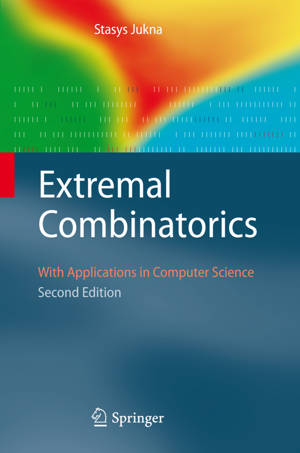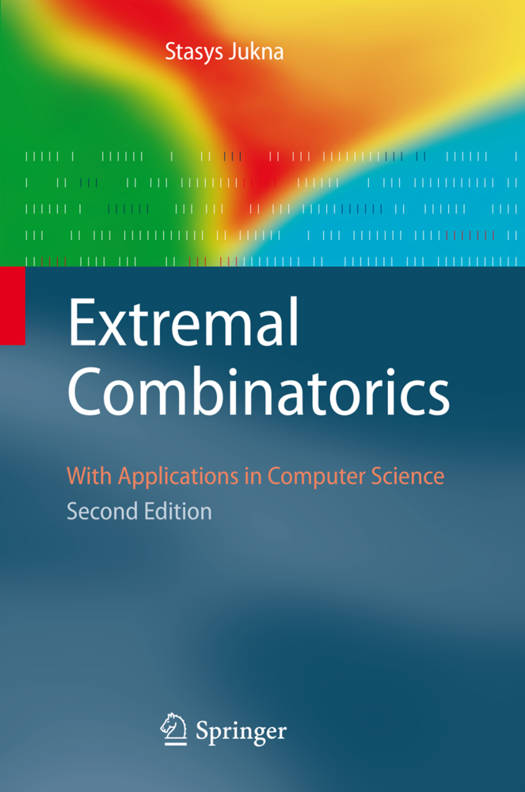
- Retrait gratuit dans votre magasin Club
- 7.000.000 titres dans notre catalogue
- Payer en toute sécurité
- Toujours un magasin près de chez vous
- Retrait gratuit dans votre magasin Club
- 7.000.0000 titres dans notre catalogue
- Payer en toute sécurité
- Toujours un magasin près de chez vous
Description
This book is a concise, self-contained, up-to-date introduction to extremal combinatorics for nonspecialists. There is a strong emphasis on theorems with particularly elegant and informative proofs, they may be called gems of the theory. The author presents a wide spectrum of the most powerful combinatorial tools together with impressive applications in computer science: methods of extremal set theory, the linear algebra method, the probabilistic method, and fragments of Ramsey theory. No special knowledge in combinatorics or computer science is assumed - the text is self-contained and the proofs can be enjoyed by undergraduate students in mathematics and computer science. Over 300 exercises of varying difficulty, and hints to their solution, complete the text.
This second edition has been extended with substantial new material, and has been revised and updated throughout. It offers three new chapters on expander graphs and eigenvalues, the polynomial method and error-correcting codes. Most of the remaining chapters also include new material, such as the Kruskal-Katona theorem on shadows, the Lovász-Stein theorem on coverings, large cliques in dense graphs without induced 4-cycles, a new lower bounds argument for monotone formulas, Dvir's solution of the finite field Kakeya conjecture, Moser's algorithmic version of the Lovász Local Lemma, Schöning's algorithm for 3-SAT, the Szemerédi-Trotter theorem on the number of point-line incidences, surprising applications of expander graphs in extremal number theory, and some other new results.
Spécifications
Parties prenantes
- Auteur(s) :
- Editeur:
Contenu
- Nombre de pages :
- 412
- Langue:
- Anglais
- Collection :
Caractéristiques
- EAN:
- 9783642173639
- Date de parution :
- 02-09-11
- Format:
- Livre relié
- Format numérique:
- Genaaid
- Dimensions :
- 156 mm x 234 mm
- Poids :
- 784 g

Les avis
Nous publions uniquement les avis qui respectent les conditions requises. Consultez nos conditions pour les avis.






